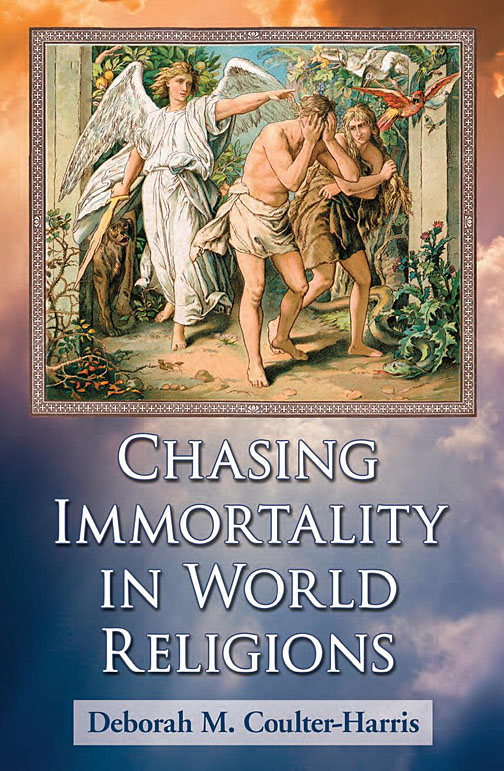The greatest mysteries of all time: death, the afterlife, and the essence of the human soul.
“I am terrified of dying, and I think most people are,” Dr. Deborah M. Coulter-Harris said. “As humans grow older, they become increasingly aware of their mortality, and I am part of this group.”
 The senior lecturer in The University of Toledo Department of English Language and Literature decided to delve deeper and examine the eternal enigmas.
The senior lecturer in The University of Toledo Department of English Language and Literature decided to delve deeper and examine the eternal enigmas.
“I have studied comparative religion for over 40 years and have always wanted to write a book that analyzed similarities rather than differences in varied faith systems,” Coulter-Harris said. “I wanted to highlight connections and influences that ancient religions had on later faith systems.”
Chasing Immortality in World Religions (McFarland & Co. Inc.) was published in August.
“Beginning with ancient Sumer and traversing ideas in ancient Egypt, Greece, India, and in the Abrahamic religions of Judaism, Christianity and Islam, I attempted to discover how earlier, regional, religious models influenced subsequent theories, and if this multitudinous array of thinking developed simply as a reaction to historical events or to an assimilation of cultural values,” Coulter-Harris wrote in the book.
She discovered that man’s belief in immortality and afterlife hasn’t changed much in 6,000 years.
“After many years of studying these issues, I was not a bit surprised, as there has been a continuity of general ideas about immortality and the afterlife throughout human history,” she said.
God, Anu, Ra, Zeus, Vishnu, Yahweh, Jesus, Allah — to believe or not to believe, that is the question.
“Whether one chooses to believe or not, the concept of immortality becomes a type of protector of human morality,” Coulter-Harris said.
Perchance to presume that there is an afterlife, that the soul lives on, that resurrection is around the corner.
“Considering the vast number of texts throughout the millennia that support these possibilities, it would seem more logical to accept that not all of these minds can be in error,” Coulter-Harris wrote in the book.
Yet doubters abound.
“As the human mind is finite, full understanding of such mysteries is impossible, unless it can be concluded that belief in immortality is simply a delusion created to bring order, control and optimism to human lives, and, without such a fantasy, life would be a nihilistic misadventure, an existence that would have meaning only in the material,” she wrote in the book.
While growing up, the author attended Roman Catholic schools for 12 years.
“I treasure the fact that I had such a sound and stable cultural background,” she said. “As a professionally trained analyst, I consciously try to avoid biases toward other religious systems, and, in this book, I make no value judgments or moral assessments of any of the religions.”
She has faith: “I know I fall short of moral perfection, but I do try to be kind and generous in my dealings with others. I hope I am found worthy of assuming my immortal body on Resurrection Day, as promised in scriptures. I believe there is some type of afterlife, but the form and essence that the afterlife will take is unknown to me as a concrete concept — the same with the soul.”
Coulter-Harris will read from and discuss Chasing Immortality in World Religions Thursday, Sept. 22, at 3:30 p.m. in the Ward M. Canaday Center for Special Collections in Carlson Library.
“I want readers to recognize that human beings are more than just an enlivened lump of clay, more than a miraculous and complex combination of minerals, proteins and atoms, that we are vessels of some greater love, intelligence, energy and spirit,” she said. “Our religions are more connected than disconnected.”
Chasing Immortality in World Religions is $35 and available at the Barnes & Noble University Bookstore, Barnes & Noble online, Amazon, and hundreds of online booksellers worldwide.